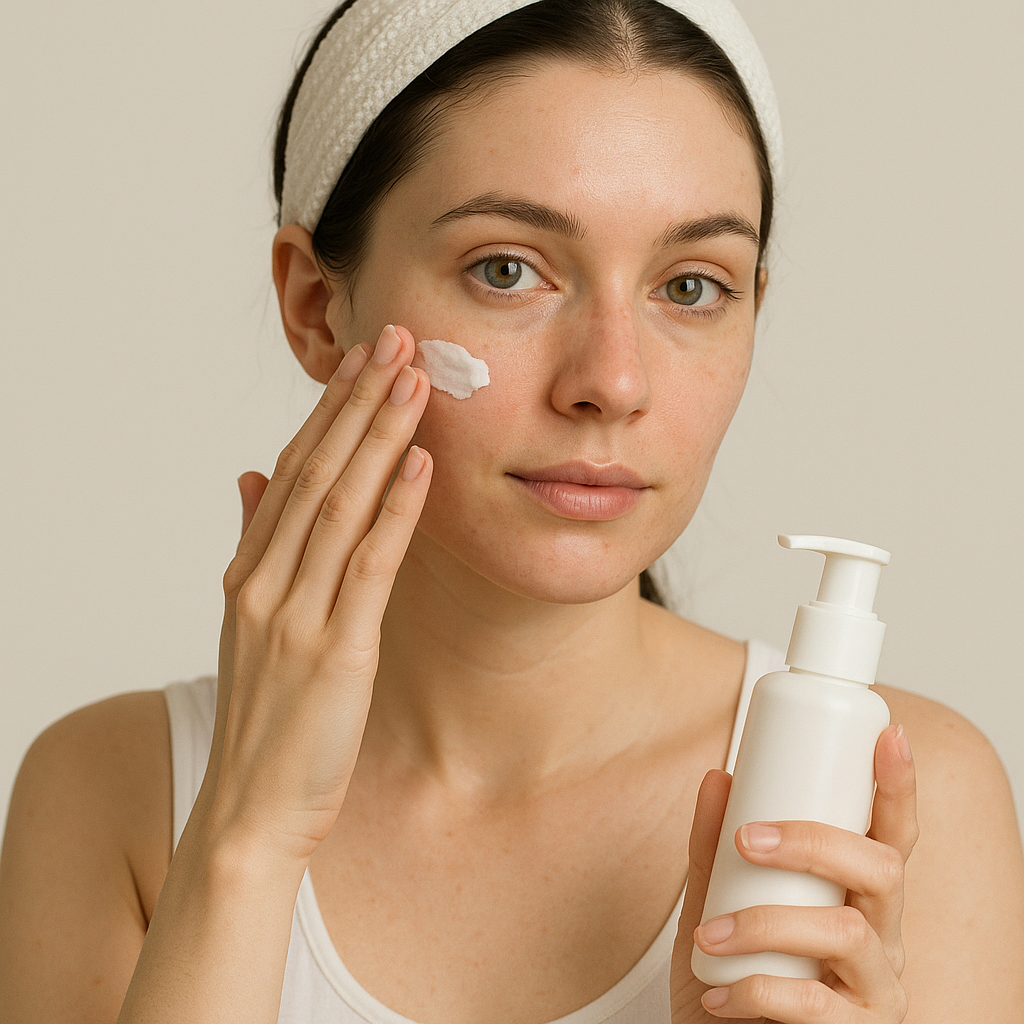The Best Skincare Routine for Sensitive Skin: Step-by-Step Guide
Sensitive skin can be tricky. It reacts to harsh weather, new products, or even stress. That’s why building a tailored skincare routine is essential—not just to soothe irritation, but to strengthen your skin barrier and prevent future flare-ups.
In this guide, dermatologists share the safest and most effective way to care for sensitive skin, from morning to night. Whether your skin is naturally reactive or has become sensitized by environmental factors, this routine will help calm, protect, and support long-term skin health.
Understanding Sensitive Skin
Sensitive skin isn’t a diagnosis but rather a skin type prone to overreacting. Common signs include:
- Redness and blotchiness
- Stinging or burning sensations
- Dry patches and flaking
- Tightness or discomfort
- Reactions to skincare products or temperature changes
These symptoms usually result from a weakened skin barrier, making it easier for irritants to penetrate and moisture to escape.
Core Principles of a Sensitive Skin Routine
A good skincare routine for sensitive skin should prioritize:
- Barrier repair and protection
- Minimal ingredients and no fragrance
- Avoidance of common irritants
- Consistent hydration
- Sun protection
Each step should aim to calm the skin while avoiding overstimulation.
Morning Skincare Routine for Sensitive Skin
- Gentle Cleanser (No Sulfates or Fragrance)Look for cream or lotion-based cleansers with soothing ingredients like glycerin or oat extract. Avoid foaming cleansers—they often strip natural oils.
- Hydrating Toner or Mist (Optional)Alcohol-free formulas with chamomile, rose water, or panthenol can refresh the skin without irritation.
- Serum with Calming IngredientsUse a lightweight serum containing niacinamide or centella asiatica to soothe inflammation and strengthen the skin barrier.
- MoisturizerChoose a fragrance-free, non-comedogenic moisturizer rich in ceramides, squalane, or hyaluronic acid.
- SunscreenUse a mineral sunscreen with zinc oxide or titanium dioxide. These are less likely to irritate sensitive skin compared to chemical filters.
Evening Skincare Routine for Sensitive Skin
- Double Cleanse (if wearing makeup or sunscreen)Use a micellar water or oil-based cleanser first, then follow with a gentle non-foaming cleanser.
- Repairing Serum (Optional)At night, sensitive skin benefits from ingredients that repair and calm: peptides, beta-glucan, or low-strength retinoids (used cautiously). [See: Is Retinol Safe for Sensitive Skin?]
- Barrier-Repair MoisturizerGo for richer creams at night with ingredients like ceramides, cholesterol, and fatty acids. Avoid active ingredients unless skin is well-tolerant.
- Spot Treatments (if necessary)Use sparingly and only if skin is not overly reactive. Look for anti-redness treatments with licorice root, azelaic acid (low strength), or calendula.
What to Avoid in a Sensitive Skin Routine
- Fragrances and Essential Oils
- Alcohol-based products
- Harsh exfoliants (scrubs, AHAs/BHAs)
- Hot water and aggressive towel-drying
- Too many products at once
Stick to the motto: Less is more.
Weekly Additions (Used With Caution)
- Gentle Exfoliation (1x per week)Use enzyme exfoliants or a mild PHA toner. Always follow with a calming moisturizer.
- Hydrating MasksSheet masks with centella, green tea, or aloe vera can boost hydration and soothe flare-ups.
Dermatologist Tips for Managing Sensitivity
- Introduce new products one at a time to monitor reactions.
- Always perform a patch test behind the ear or on the neck.
- Avoid trying “too many actives” in a short time frame.
- Consider switching to lukewarm water only for cleansing.
- If redness or flaking worsens, simplify to just a cleanser and moisturizer for a few days.
Product Recommendations (2025 Update)
- Cleanser: Vanicream Gentle Facial Cleanser
- Serum: La Roche-Posay Toleriane Ultra Dermallergo
- Moisturizer: CeraVe Moisturizing Cream
- Sunscreen: EltaMD UV Clear Broad-Spectrum SPF 46
- Night Cream: Avene Tolerance Control Soothing Skin Recovery Balm
These formulas are widely recommended by dermatologists for reactive or compromised skin.
Conclusion
Sensitive skin requires a thoughtful, consistent routine that supports the skin barrier and minimizes irritation. By choosing fragrance-free, barrier-friendly products and avoiding common triggers, you can manage sensitivity while keeping your skin healthy, radiant, and calm.
Your daily habits matter more than expensive treatments. Consistency, simplicity, and gentle care are the foundation of any sensitive skin regimen.
